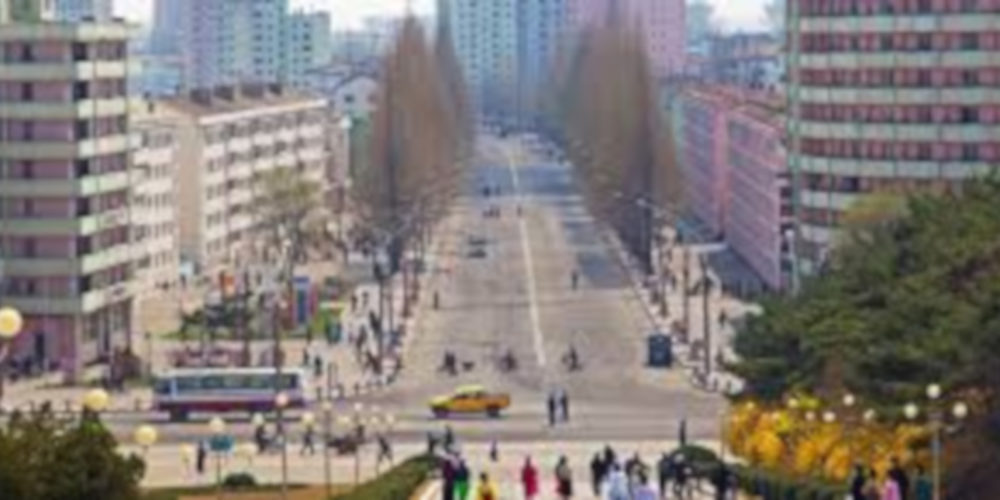Anybody who thinks they’re an expert on North Korea is either a liar or a fool. Every so often the media go into a frenzy in reporting the latest news story about the country, playing up its eccentricities. Time and again North Korean officials who were supposedly executed will turn up alive and well, or some story about North Korea landing on Venus will turn out to have originated on a satirical web site, rather than something that came from the country’s official news media.
The sometimes comical barrage of propaganda against the country comes not just from anti-communism but also from straightforward racism: these people are warped by their totalitarian regime, and it’s the duty of the civilised countries to sort them out. No wonder the North Korean state remains so distrustful of westerners when so many, even many on the left, make no effort to understand the country.
Notwithstanding the worship of the Kim family, or the idealistic Juche ideology, which have absolutely nothing in common with Marxism, it must be emphasised that all countries come to socialism in their own way; and the Democratic People’s Republic of Korea has managed some impressive achievements over the years. It was the second country in Asia to industrialise, after Japan, and did so while rebuilding from the Korean War.
Japan colonised Korea in 1910, its occupation lasting until 1945. During that time Koreans suffered greatly. Thousands of “comfort women” were forced into sex slavery, the murder of people and theft of their meagre resources was common. The liberation struggle that began in 1930 was led by Kim Il Sung, who co-operated with the Chinese communists in the fight against the Japanese. After Korea was liberated, many Koreans stayed to fight with the Chinese communists.
After the liberation, local People’s Committees were set up by the people to run the country when the Japanese left. Much as in Germany, imperialism partitioned the country and imposed its own regime, full of former collaborators. In the years after 1945 there were more than a few local insurgencies and uprisings against the southern state, seen as a puppet of the United States. The response by the United States and South Korea was massacres of communists and others, which continued for decades after.
During the Korean War itself the principal city of the North, Pyongyang, was devastated, Agent Orange was used to destroy agriculture, dams were bombed to flood villages, and nuclear bombs were primed and ready to be used. No wonder it remains a garrison-state to this day, while the United States stations nearly 30,000 troops on its doorstep.
Yet despite this the North was able to industrialise, with help from China and the Soviet Union. It managed to remain ahead of South Korea economically until the 1980s.
This level of development allowed the North to have an advanced socialist economy, with its public distribution system being well regarded for providing for people’s needs. However, economic decline and the counter-revolutions in the Soviet Union and eastern Europe left the North devastated, given its energy-intensive agricultural system. In response to famine, it began a limited opening of the economy to the private sector and later the songun or “military first” policy under Kim Jong Il.
Under its new, younger leader the North has relaxed the control of the ageing military figures, and has used its nuclear programme to allow it to reduce the amount of military spending. The result has been a massive boost to the economy, despite crippling sanctions, in recent years.
There have been study trips to Viet Nam and China to study their economic reforms. North Korea has a massive potential reserve of rare-earth minerals and other resources in high demand, but lacks the ability to harness them. “Special zones,” such as Kaesong, Sinuiju, and Rason, are used to allow South Korean companies to use North Korean labour, subject to external stability.
While the North remains a poor country, and contains many things that Marxists will take issue with, it still has many things we can learn from. Its universal health system was noted by a WHO official as something any developing country would envy. It has universal education, almost-free housing, full literacy, full employment, clean streets, and practically no crime, addiction, prostitution, or gambling. Women make up half or a majority of parliamentary deputies, professionals, and workers. Of significance also is that North Koreans pay no tax: state revenue comes from publicly owned companies. The cycle of boom and bust is not present.
It has managed all this under very difficult conditions: a partitioned country, few global allies, the threat of war coming any day. While it remains a very tense, controlled society, there is no compromise on its independence. It has also managed to preserve—through an intense and crude patriotism—the same revolutionary enthusiasm it had when it first became a state, something other socialist states struggled with over time.
Whether or not the North deserves our admiration, it certainly warrants our respect.






